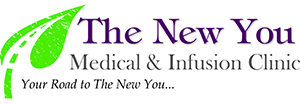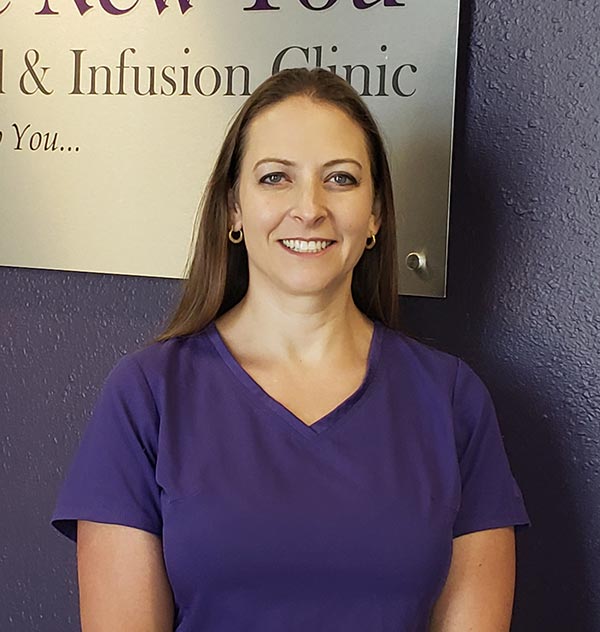Sinusitis Treatment in Sunnyvale, TX

What is Sinusitis?
Sinusitis, also known as a sinus infection, is a condition that causes inflammation (swelling) in the cavities surrounding your nasal passages. When the mucous membranes become inflamed, the swelling can cause blockage in the nasal passages and lead to symptoms like postnasal drip and headaches.
The Centers for Disease Control and Prevention (CDC) estimate that about 30 million people in the U.S. develop sinusitis each year. While sinus infections may go away on their own, you should make an appointment with your healthcare provider if your symptoms include a fever, headache, or last longer than seven days. To schedule a consultation with a qualified healthcare practitioner in Sunnyvale who specializes in sinusitis treatment, call (817) 203-2760 or contact Ms. Jessica Stangenwald online.
Types of Sinusitis
There are two types of sinusitis: acute sinusitis, the most common type, which lasts less than a month; and chronic sinusitis, which lasts longer than a month and continually returns. Some healthcare professionals also choose to classify sinusitis that lasts between four and twelve weeks as subacute, but this is fairly uncommon.
Causes of Sinusitis
When fluid becomes trapped in the sinus cavities, infectious agents like viruses are able to thrive in the fluid and grow into an infection. According to the CDC, 90% of sinusitis is viral, but bacteria, funguses, and pollutants like airborne chemicals can also cause sinus infections. There are also several factors that can cause nasal blockage or otherwise increase risk of developing sinusitis, including:
- Previous respiratory tract infections
- Hay fever (allergic rhinitis)
- Deviated septum
- Narrowed or crooked nasal cavity
- Nasal polyps, which are non-cancerous growths on the lining of your sinuses
- Smoking
- Chronic illnesses like AIDS and cystic fibrosis that weaken the immune system
- Exposure to air pollutants (particulate matter, ozone, nitrogen dioxide, etc.)
Symptoms of Sinusitis
Though they can vary from person to person due to the severity of the infection, common symptoms of acute sinusitis include:
- Fever
- Pain and/or swelling in the face
- Post-nasal drip
- Stuffy or runny nose
- Soreness in the ears, teeth, jaw, or throat
- Coughing, especially at night
Symptoms of chronic sinusitis may include symptoms of acute sinusitis, in addition to:
- Severe headache
- Fatigue
- Green or yellow discharge from the nose or throat
- Pus in the sinuses
- Toothache
- Foul breath
In rare cases, untreated sinusitis can lead to severe complications like meningitis (swelling of the membranes that line the brain and spine) or a bone infection. Signs of a severe sinus infection include:
- Blurred or double vision
- Neck stiffness
- Disorientation
- Difficulty breathing
Make an appointment with a healthcare professional if you experience any of these severe symptoms, or if your sinusitis symptoms last longer than 7 days.
Diagnosing Sinusitis
In order to diagnose a sinus infection, a sinusitis doctor may physically examine your nasal cavity for signs of swelling. This is ordinarily sufficient to diagnose a sinus infection, but if initial treatment is not successful, further diagnostic tests may be performed, including:
- Scans such as computed tomography (CT) or magnetic resonance imaging (MRI)
- Lab testing of mucus to determine sinusitis cause
- Use of a small, thin tube with a camera to examine the nasal passages (endoscopy)
- Biopsy of sinus tissue, usually to determine whether or not infection is fungal
Treating Sinusitis
Many cases of sinusitis are temporary, and may not require treatment. In cases where sinus infections do require treatment, the right medicine often depends on the cause of the illness. Acute sinusitis treatment may include:
- Antibiotics, which are ordinarily prescribed after symptoms have persisted for seven to ten days
- Nasal decongestant sprays, which should be used only for three to four days to avoid dependence
- Antihistamine medications, which block inflammation caused by allergic reactions, so they are useful for allergic sinusitis
- Topical nasal corticosteroids, which are prescription sprays that address inflammation and, if present, nasal polyps
There are several non-medical home remedies for sinusitis that may be helpful regardless of whether or not a patient is also using prescription medication. These remedies include:
- Rinsing and clearing the nasal passages with salt water or a saline solution
- Applying a warm compress to the face, which may relieve swelling
- Inhaling steam, possibly with essential menthol or eucalyptus oil drops, to relieve congestion
- Drinking plenty of clear fluids to keep your mucus thin and relieve congestion
- Getting plenty of rest
- Several nutrients, herbs and spices such as turmeric, ginger root, vitamin C, bromelain, and thyme can help eliminate mucus, reduce congestion, and boost your immune response
- If your sinusitis is caused by allergies, an elimination diet may allow you to identify and remove possible food-based allergens
Chronic sinusitis treatment may involve antifungal medication in cases where the infections are caused by funguses. In cases chronic sinus infections that are caused by a deviated septum or narrow nasal cavity, a septoplasty--a procedure to straighten the cartilage and bone in the nose--or functional endoscopic sinus surgery (FESS)--a procedure to restore ventilation of nasal passages--may be required. Surgery may also be necessary in the event of polyps or if the sinusitis has resisted all other treatments. Though effective, surgery is an extreme option that should always be a last resort.
Preventing Sinusitis
While there is no guaranteed way to prevent sinusitis, methods may include:
- Frequent hand washing
- Keeping up-to-date with recommended immunizations
- Avoiding cigarettes and secondhand smoke
- Using a home humidifier to keep the air moist
- Avoiding allergens if you are prone to allergic sinusitis
Request Your Appointment Today
A sinus infection can oftentimes be a nuisance, but with proper monitoring and treatment, it can be kept in check. To schedule a consultation with a qualified healthcare practitioner in Sunnyvale, TX who specializes in acute or chronic sinusitis treatment, call (817) 203-2760 or contact Ms. Jessica Stangenwald online.
The New You Medical & Infusion Clinic
Address
100 Grapevine HwyHurst, TX 76054
(817) 203-2760
https://www.newyoumedclinic.com/
Hours
Mon:
10:00 am - 6:00 pm
Tue:
10:00 am - 6:00 pm
Wed:
10:00 am - 6:00 pm
Thu:
10:00 am - 6:00 pm
Fri:
Closed
Sat:
Closed
Sun:
Closed


